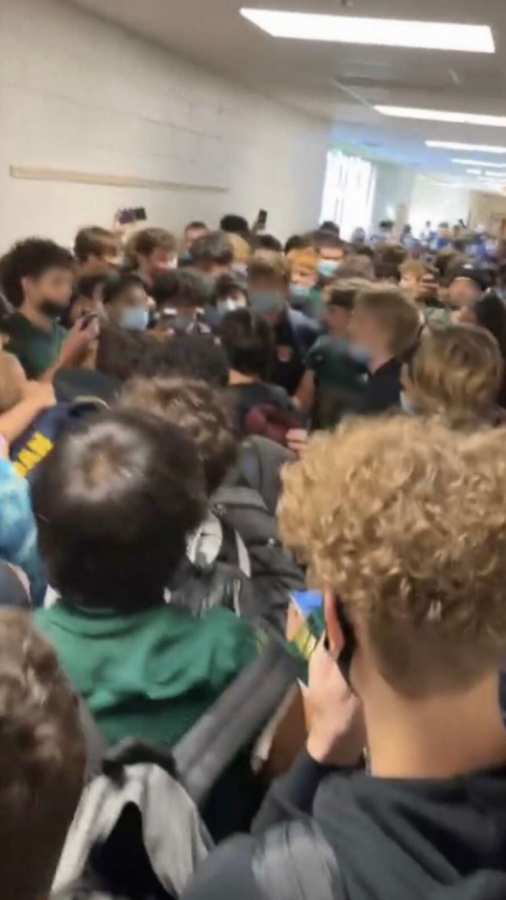It’s AY Okay
Why the Ay should continue without changes at Langley
After an announcement on the morning of November 5th regarding the planned Ay came over the loudspeaker stating that participating in the Ay would result in punishment, students all over the school were left wondering whether or not the Ay will ever return. More recently, an Ay took place, sparking joy and energy in the school again, in an attempt to hype up students for the basketball game that night and the last few weeks leading up to winter break. Is Ay back for good, or will the school break down on the issue once again?
“I would describe the Ay as unifying and a harmless source of fun that gets students’ energy out to help them focus during classes and get better grades,” anonymous Ay creator said. This description of Ay is drastically different from the way Langley principal, Kim Greer, described the event.
“[Ay is] something that is not in compliance with what is expected by the school division. I respect that students have the desire to see friends in the school day and engage in ways that are unstructured, but we all have a responsibility to make sure that whatever behaviors are taking place are meeting the expectations that are set for us and are also creating and conducive to a positive learning environment. While some students find Ay to be something really fun, other students feel uncomfortable,” Greer said.
In the Student Rights and Responsibilities rulebook, it is written that “students have the right to express themselves through speech, assembly, distributing literature, and other ways. They are expected to communicate their opinions in ways that do not interfere with the rights of others, cause disruption or harm, damage another’s reputation, or break the law.”
The potential problem of the Ay is that it causes disruption to the school day and disrupts others. The Ay is planned by students during passing periods and is in a location that can accommodate the large number of students that attend, so therefore, the Ay is not a substantial disruption to the school day. Rather, it is simply students gathering to express themselves. In the supreme court case “Hazelwood School District v. Kuhlmeier” regarding the school’s rights to censorship and the extent of student’s 1st amendment rights, the ruling determined that students do not have their full 1st amendment rights in the school setting; however, the only way the school can infringe on said rights is if there are “legitimate pedagogical concerns.” By definition, pedagogy is the method and practice of teaching, so because of the circumstances in which the creators conduct an Ay, it does not have any legitimate pedagogical concern.
In an attempt to reform the Ay, Greer went to the leadership class to generate ideas about how Langley could make the Ay school sponsored and in compliance with the rules in which she believes the current Ay breaks.
“If the creators or someone else have some ideas to generate an Ay that promotes a positive school environment, I am all ears. The last thing I want to do is say no,” Greer said.
However, if the Ay became directly associated with Langley and its administration, it would not be an enjoyable activity. There is no reason why everything that happens under the Langley roof should be school-sponsored, but rather, students should be able to continue the Ay if they choose to, as long as it remains free of legitimate pedagogical concerns. The Ay is a fine example of a way in which Langley students have found a way to care and connect with each other during such troubling times, and therefore, should continue as is.


